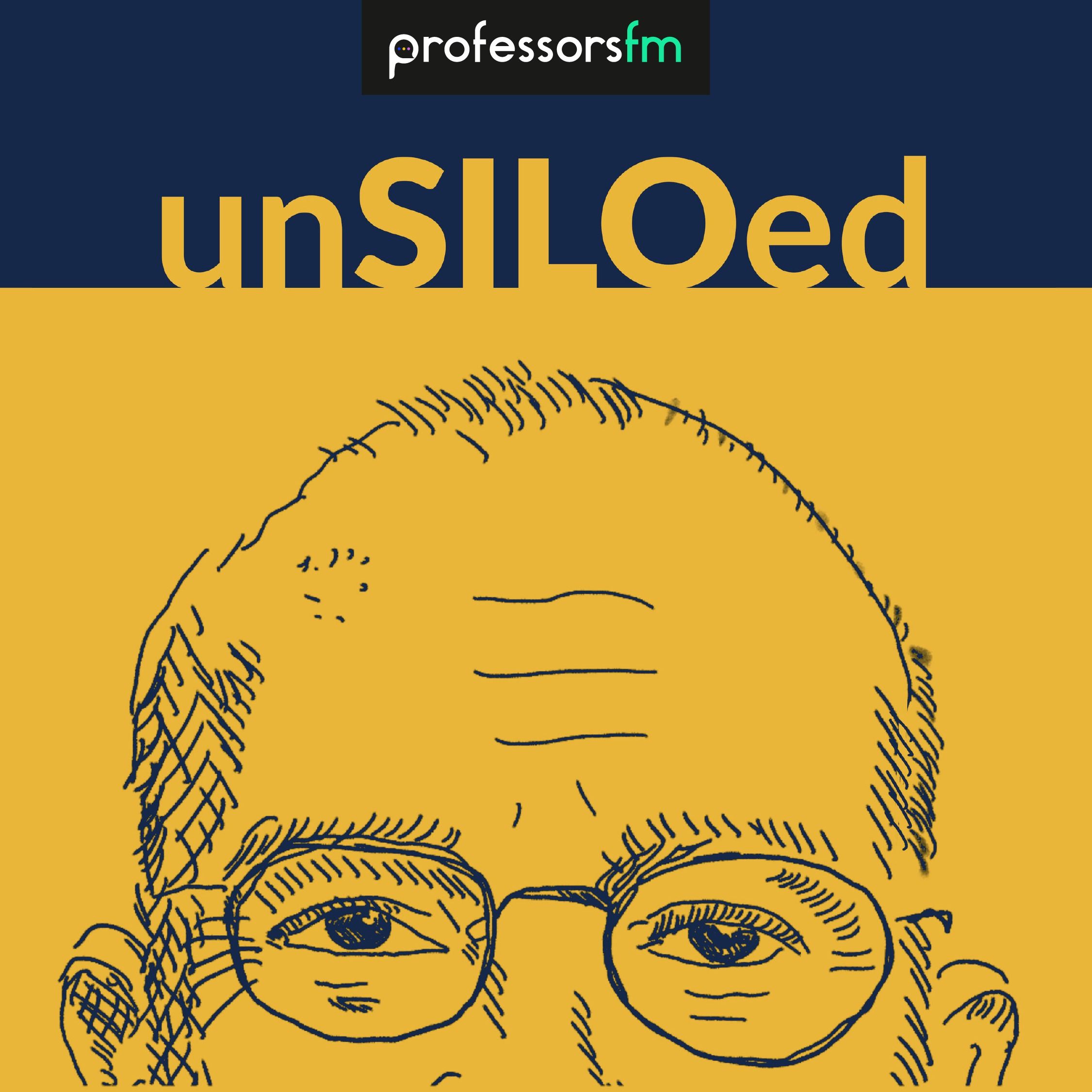

unSILOed with Greg LaBlanc
Greg La Blanc
unSILOed is a series of interdisciplinary conversations that inspire new ways of thinking about our world. Our goal is to build a community of lifelong learners addicted to curiosity and the pursuit of insight about themselves and the world around them.*unSILOed Podcast is produced by University FM.*
Episodes
Mentioned books

Aug 22, 2024 • 1h 6min
456. Economic Growth in the Age of Automation with Carl Benedikt Frey
Carl Benedikt Frey, Dieter Schwarz Associate Professor of AI & Work at the Oxford Internet Institute, dives into the intersection of automation and economic growth. He discusses how historical technological shifts mirror today’s challenges, revealing the balance between job displacement and new industry creation. The conversation explores who benefits from AI's rise, the political implications of tech advancements, and the critical need for societal adaptation to ensure sustainable productivity. Insightful and thought-provoking, it's a deep look at our future workforce.

19 snips
Aug 19, 2024 • 58min
455. How Meritocracy Has Become the New Aristocracy feat. Daniel Markovits
Daniel Markovits, the Guido Calabresi Professor of Law at Yale, explores how meritocracy, intended to promote equality, has morphed into a new aristocracy. He highlights the irony of meritocracy perpetuating inequality and eroding the middle class. The discussion touches on the heritability of elite status, the precarious state of non-elite workers amid technological change, and the moral dilemmas facing professionals like lawyers. Markovits challenges listeners to consider the societal implications of wealth concentration and the cultural shifts needed to address these issues.

Aug 16, 2024 • 57min
454. American Childhood From the Frontier to Helicopter Parenting feat. Paula S. Fass
In a fascinating discussion, Paula S. Fass, an emerita professor of history at UC Berkeley, shares insights on how American childhood has transformed over the centuries. She explores the overlooked significance of childhood in shaping culture and politics, tracing shifts in parenting from independence to helicopter parenting. The conversation highlights the impact of historical thinkers like Locke and Rousseau, the evolution of educational practices, and how changing family dynamics affect modern parenting. The unique nature of American childhood may be fading, sparking thought-provoking reflections.

Aug 14, 2024 • 49min
453. Financial Deals that Shaped the World feat. Paolo Zannoni
Paolo Zannoni, Executive Deputy Chairman at Prada and author of 'Money and Promises,' dives into the fascinating history of finance. He discusses how wooden sticks shaped banking and why silver coins vanished in England. Zannoni highlights Italy's pivotal role in modern banking and explains the crucial relationship between trust and transparency in financial systems. The conversation also connects historical transactions to today’s blockchain technology, showcasing how understanding finance's past can provide insights for managing current crises.

Aug 12, 2024 • 1h 6min
452. The Groundbreaking Case That Changed Sovereign Debt Law with Gregory Makoff
Gregory Makoff, a physicist turned banker and Harvard Kennedy School fellow, dives into the gripping saga of Argentina's $100 billion debt crisis. He unpacks the complexities of sovereign debt without international bankruptcy laws, shedding light on the lengthy U.S. court battles that challenged traditional creditor rights. The discussion highlights aggressive tactics used by hedge funds, the intricate dynamics within judicial decisions, and the evolving role of the IMF in global finance, revealing how these factors reshape sovereign debt law.

Aug 9, 2024 • 50min
451. Reckoning with Imperial History feat. Sathnam Sanghera
Sathnam Sanghera, a journalist for The Times of London and author of "Empireland," dives deep into the complexities of British imperial history. He discusses how this past impacts contemporary education and societal perceptions, revealing a troubling tendency for denial and oversimplification. The conversation addresses the intricacies of race and identity shaped by imperial legacies, and the nuanced discussions around reparations. Sanghera's insights challenge listeners to reconsider their understanding of British history and its ongoing effects today.

4 snips
Aug 7, 2024 • 51min
450. The Founding Fathers’ Tireless Pursuit of Virtue with Jeffrey Rosen
Jeffrey Rosen, CEO of the National Constitution Center and law professor at George Washington University, dives deep into how ancient philosophies shaped America’s founders. He discusses the concerning shift from virtue-based happiness to a pleasure-seeking mentality starting in the 1960s. Rosen emphasizes the need for moral education and the vital role of deep reading in cultivating civic virtue. He also highlights Benjamin Franklin's dedication to self-education and its relevance in today's society, urging a revival of character education.

Aug 5, 2024 • 1h 9min
449. The Pains of Legal Micromanagement with Philip K. Howard
Philip K. Howard, a prominent lawyer and author focused on legal reform, joins the discussion about the overwhelming complexity of contemporary laws. He argues that excessive legal micromanagement stifles individual agency and practical wisdom. Highlighting the necessity of balancing strict rules with human judgment, he critiques how rigid regulations can lead to institutional failures. Howard also proposes innovative solutions for urban development, like a 'Department of Exceptions,' to promote flexibility and address housing shortages.

Aug 2, 2024 • 45min
448. Living Your Best Epicurean Life with Catherine Wilson
Catherine Wilson, an emerita professor of philosophy at the University of York, discusses the resurgence of Epicureanism in modern life. She contrasts it with Stoicism, emphasizing the importance of pleasure and intrinsic motivations over societal validation. The podcast explores how Epicurean principles can guide personal joy and ethical behavior amidst today's consumer culture. Wilson also critiques the historical and contemporary societal values, advocating for peace and genuine happiness as essential aspects of human ethics.

Jul 31, 2024 • 54min
447. Weaponizing Shame and Algorithms feat. Cathy O'Neil
Cathy O'Neil, the founder of Orca and a research fellow at Harvard, dives into how algorithms can exacerbate societal shaming, particularly via social media. She discusses the consequences of algorithmic decision-making on marginalized groups and the need for accountability in tech development. O'Neil highlights how digital platforms profit from shameful outrage while manipulating young users' behaviors. The conversation sheds light on how to navigate the complex relationship between technology, identity, and societal norms.


